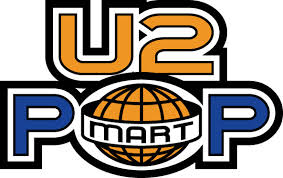PopMart Archives: Flood Chat Transcript

MSN: Let’s start off talking a little bit about your
background and what records you’ve worked on . . .
Flood: Well I started off in 1978 as a humble runner at a
recording studio in London and I worked my way through the
ranks of being an assistant engineer and then record house
engineer, then went freelance and ended into production along
the way. In my sort of engineering phase let’s call it, I worked on
various different types of bands-Soft Cell, Psychic TV, Cabaret
Voltaire, the Associates, people like that. I also did a lot of the
high-energy dance stuff that was big in the early to mid ’80s here.
Then I reached culmination of engineering status engineering the
Joshua Tree. That was the first inroads into working with U2. After
that I went through a period of production/co-production
engineering with bands like Erasure, Book of Love, Renegade
Soundwave, Populated Self, Nick Cave…. As the late ’80s
dribbled out, I was pretty much full on production with bands like
Nitzer Ebb, Depeche Mode, Nine Inch Nails, Curve, Charlatans,
obviously more U2-Achtung Baby, though that was kind of a step
back into more hands-on engineering and Eno and Lamwell were
the producers on that, even though by the end I think my input was
sort of junior production in the sonic department. Then Smashing
Pumpkins, PJ Harvey, and that brings us up to date.
MSN: So how do you approach the production with each new
artist?
Flood: My main criteria for doing anything is I have to like the
music. I’ve got very broad taste in music, obviously. And you have
to get on with the people. So when you’re approaching something
from word one, usually it’s a) because you like the music, but b)
because the people actually want to try and push
themselves-people who want to try different things or move into
slightly different areas than where they’re perceived or trying
encompassing different ideas.
Hence, that’s why I can be working with a full-on synth computer
band one minute and then just a straight-ahead three-piece,
two-piece in a room with two mikes. Really every project is totally
different how you approach it. You just have to have a sense of
feeling of what the band wants and you’re there to take what they
have and what they want and encourage that and throw it back to
them to push them on further.



